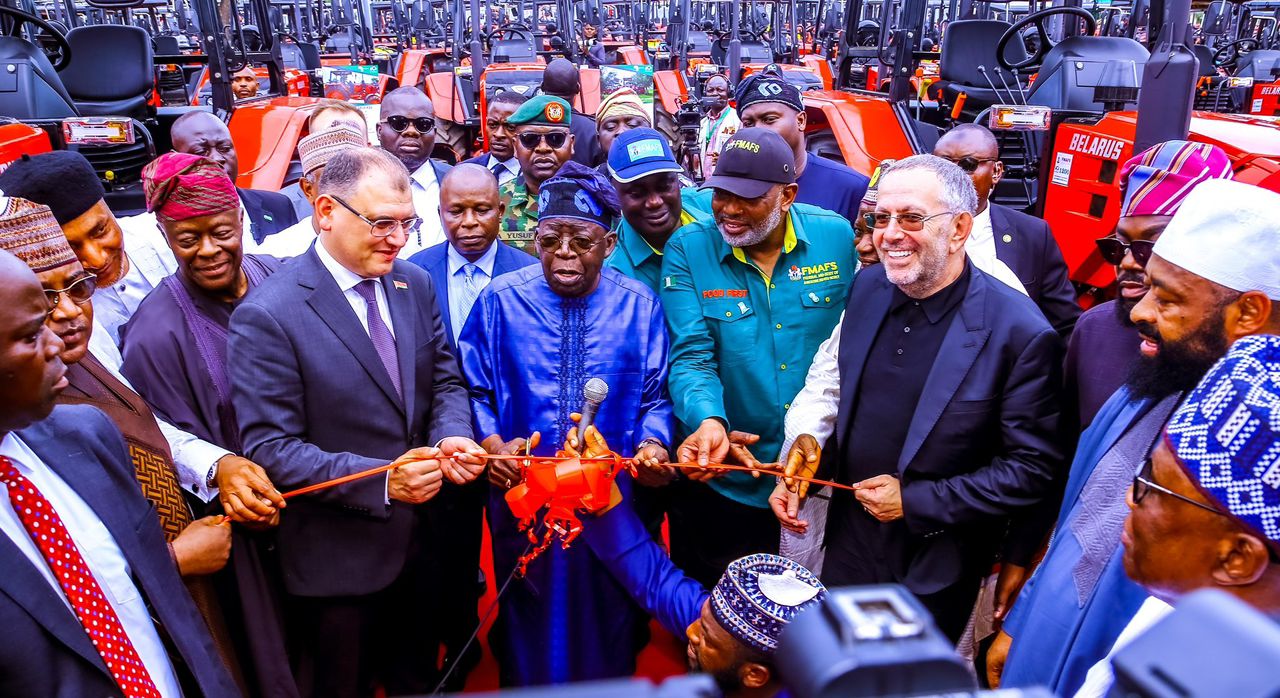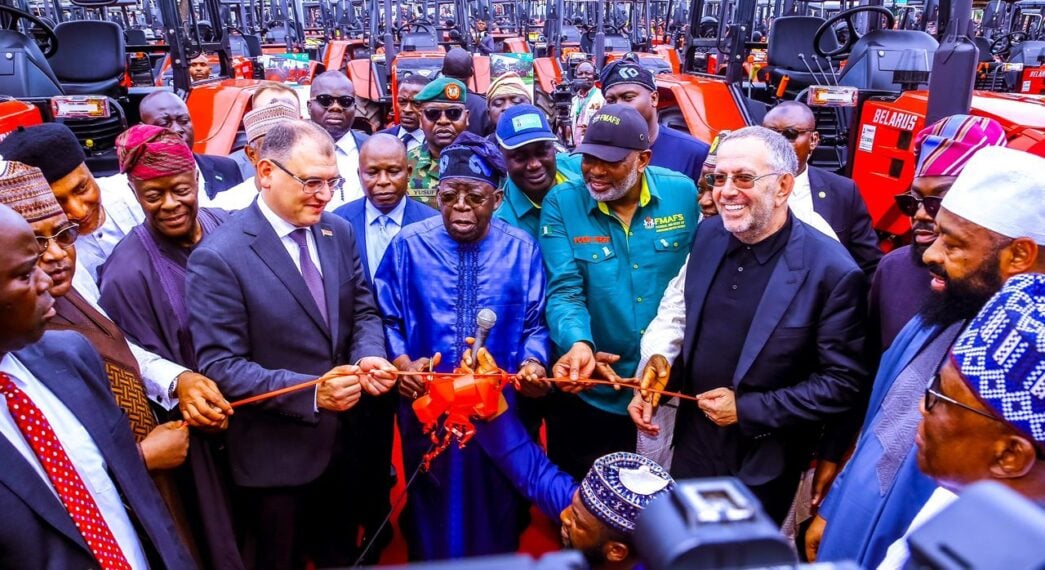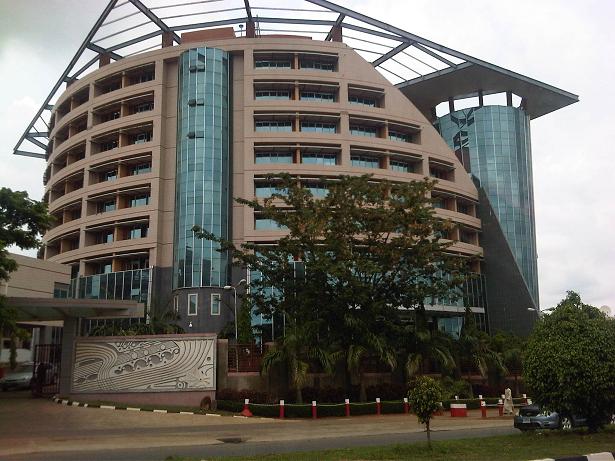When President Bola Ahmed Tinubu stood yesterday (Monday, June 23, 2025) beside a fleet of gleaming tractors and declared his intention to make farming ‘easy and more sexy’ for Nigerian youths, it stirred a mix of curiosity and anticipation. Not entirely because the statement was unexpected, but because of the urgency it now carries. In a nation grappling with food insecurity, youth unemployment and rural economic decline, such language is intentional, not for novelty’s sake, but for what it promises.
Yet, beneath the sparkle of rhetoric lies a genuine question: Can farming, long the reluctant profession of last resort, truly become the next cool frontier for Nigerian youths? Can agric become sexy in the way fintech or Nollywood are?
The word sexy evokes allure, aspiration, status and intense visibility. By that definition, Nigeria’s farming ecosystem still falls several rows short. A simple vox pop on any Nigerian street would likely confirm the sentiment, just ask a graduate whether they would rather Japa, launch a YouTube channel, or build an agribusiness, the response is swift and telling.
President Tinubu’s declaration which was tied to the launch of 2,000 tractors and hundreds of other Agric implements under the ‘Renewed Hope Agricultural Mechanisation Programme’, isn’t without substance. The initiative aims to boost mechanisation from a mere 0.27 horsepower per hectare to a level more in line with global standards. Embedded within this are GPS-monitored leasing, youth-focused training and a collaborative partnership with the nation of Belarus.
Advertisement
However laudable, 2,000 tractors in a country with over 70 million hectares of cultivable land must be viewed as just a pilot and not a finish line. It is a promising signal though, but to truly ignite an agricultural revolution, the country must think in multiples and not milestones.
Rebranding agriculture is the first step. For many years, the sector has been associated with poverty, manual labor and low social mobility. To make it appealing for youths, the narrative must surely evolve, from survival to success, certainly one hectare of subsistence farming won’t cut it any longer. Young Nigerians need to see farmers as founders, agropreneurs as wealth creators and farming as a tech-driven, purpose-led enterprise. Until graduates proudly introduce themselves as farmers without raising eyebrows, agriculture won’t shed its outdated skin.
Next comes commercial reinvention. A single hectare of maize may feed a family, but it definitely won’t inspire a generation. Youths want scale, systems and returns. Mechanisation is part of the solution, but only if it is backed by aggregation platforms, logistics infrastructure and export opportunities, which President Tinubu’s government is trying to put in place now. Without reliable markets and efficient distribution, even the best machinery can become underutilised assets and symbols of ambition without structure.
Advertisement
Finance is where optimism cautiously emerges. The proposed National Youth Bank would certainly play a transformative role, if it avoids the bureaucratic traps of the past. Designed to serve first-time entrepreneurs and underserved demographics, its success will depend on agility, data-driven lending models and partnerships with agritech platforms.
Complementing this, is the newly established National Credit Guarantee Company, which is primed to take over from NIRSAL Plc to de-risk lending and give financial institutions a reason to bet on youths. Also in the mix, is the recently recapitalised Bank of Agriculture, with its new positioning, completing the foundation for scalable agro-financing.
Even the best financial systems mean little without coordination. This is where private capital, development finance institutions and impact investors must step in, not as observers, but as co-builders. Government can only lay the foundation, but market-driven innovation will scale the model. Blended finance, digital extension services and data-enabled supply chains are all critical pieces of the puzzle.
Naturally, there are structural challenges that still need to be addressed. Issues such as land access, rural security, policy consistency and infrastructure development remain important priorities in making agriculture more attractive to young people. Even the most modern tractor is only as effective as the ecosystem it operates in, one defined by predictability, infrastructure and coordinated support. For the sector to truly become a magnet for innovation and talent, it must be anchored in safety, stability and scalable, profitable opportunities.
Advertisement
To be fair, President Tinubu’s willingness to speak the language of generational renewal signals a break from the past. His focus on mechanisation, skills and self-reliance reflects a policy mindset that sees youths, not as mere one-hectare-of-land beneficiaries but as builders. If the Renewed Hope Agricultural Mechanisation Programme evolves into a coordinated ecosystem of finance, infrastructure and incentives, it can be a turning point.
But policy alone cannot animate ambition. The transformation must first happen in the hearts and minds of young people.
Ultimately, what Nigerian youths need is belief. That agriculture isn’t a fallback, but a launchpad. That food systems can be as innovative as any tech startup. That farming isn’t just dignified, but it can also be desirable. A new image of agriculture must be seeded, not just in rural communities, but in the national imagination.
In conclusion, can President Tinubu truly make agriculture sexy? With the right execution, the answer doesn’t have to be left to time….it can be shaped by action.
Advertisement
Akande is director of SWAgCo
Advertisement
Views expressed by contributors are strictly personal and not of TheCable.













